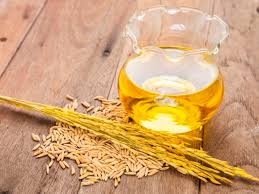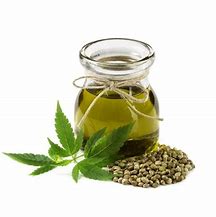Like eating peanut oil? Get serving size guidelines, health risks, and more Story by Kiran Dhaliwal, Master's Degree N







Like eating peanut oil? Get serving size guidelines, health risks, and more
Perspective from Kiran Dhaliwal
Possible Side Effects
- Peanut oil is likely safe for most people when consume as a food, however it can cause an allergic reaction in people who have a peanut allergy
- Peanut oil may not be the best for high-heat cooking as it does not have a high smoke point, which means it is more susceptible to oxidation which exposed to heat.
- Oxidative stress from high smoke points can lead to a build-up of free radicals in the body, which can increase oxidative stress leading to inflammation and different diseases.
Quantity Recommendation
- Total fat intake according to the Australian Dietary Guidelines is to keep the total fat intake between 20-35% of calories. Daily consumption of about 1.5 tablespoons of oils which contain high levels (>70%) oleic acid, when it is replacing fats and oils higher in saturated fats.
-
Perspective from Luciana M. Cherubin
Possible Side Effects
- Peanut allergic individuals should avoid peanut oil.
- Peanut oil is high in pro-inflammatory omega-6 fatty acids and is prone to oxidation, which may increase the risk of certain diseases.
Quantity Recommendation
- Due to the amount of omega-6 fatty acids, it is recommended to moderate its consumption and prefer healthier options such as coconut oil or olive oil.
Reference: Story by Kiran Dhaliwal, Master's Degree N
Articles-Most Read
- Home
- Contact Us
- Coconut Oil-2
- Absorption Ratings for Carrier Oils
- Cold Pressing Method
- What are Essential Fatty Acids
- Cherry Kernel Oil
- Fixed Oils and Skin Penetration
- Hempseed Oil
- Almond Oil
- Cocoa butter
- Camelina Oil
- Antibacterial Effects Of Carrier Oil
- Coconut Oil
- Lime Blossom Oil (macerated)
- Carrot Oil, Wild Carrot Oil (macerated)
- Apricot Kernel Oil
- Kukui Nut Oil
- Pumkin Seed Oil - Cucurbita maxima, C. pepo
- Jojoba Wax
- Passion Flower OIl (Macerated)
- Hydrocotyle Oil (macerated)
- Palm Kernel Oil
- Rapeseed Oil - Carrier Oil
- Nutrients
Who's On Line
We have 92 guests and no members online
Articles-Latest
- How to Make Homemade Olive Oil: A Step-by-Step Guide
- 20 Evidence-Based Aloe Vera Oil Benefits For Skin, Hair & Health
- Peanut oil - Cold pressed - Are There Health Benefits? How To Make
- What Are the Health Benefits of Black Seed Oil?
- Comfrey oil Infused
- Chamomile Flowers Infused Oil
- Calendula Flowers Infused Oil
- Arnica Flowers Infused Oil
- How To Make Herb-Infused Oils
- DIY avocado oil for healthy skin
- How To Make Coconut Oil
- 8 Benefits of Mustard Oil, Plus How to Use It
- SHOREA STENOPTERA SEED BUTTER
- Shea Butter- 7 Amazing Benefits Of Shea Butter
- Monoi Oil For Hair & Skin
- Mango Seed Oil
- Cohune Oil Is The Next Big Thing
- Brazil Nut OIl
- 7 Impressive Benefits Of Allspice
- Camelina Oil Benefits, Uses, and Side Effects




